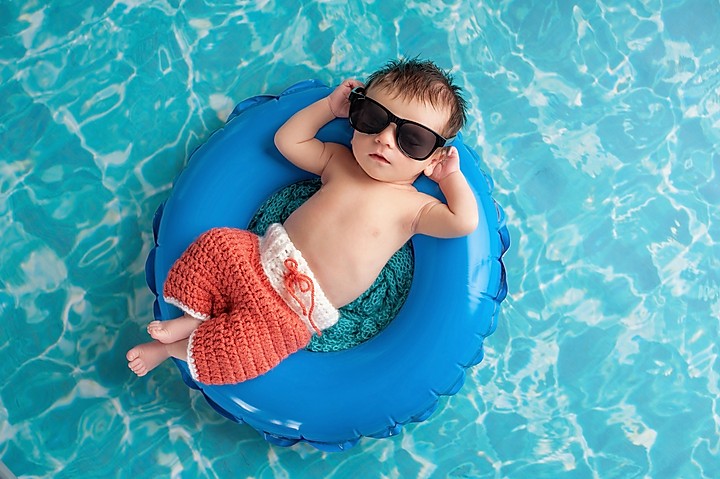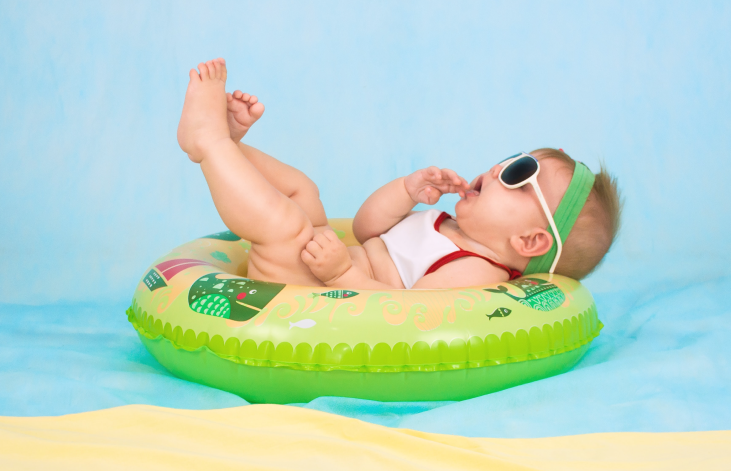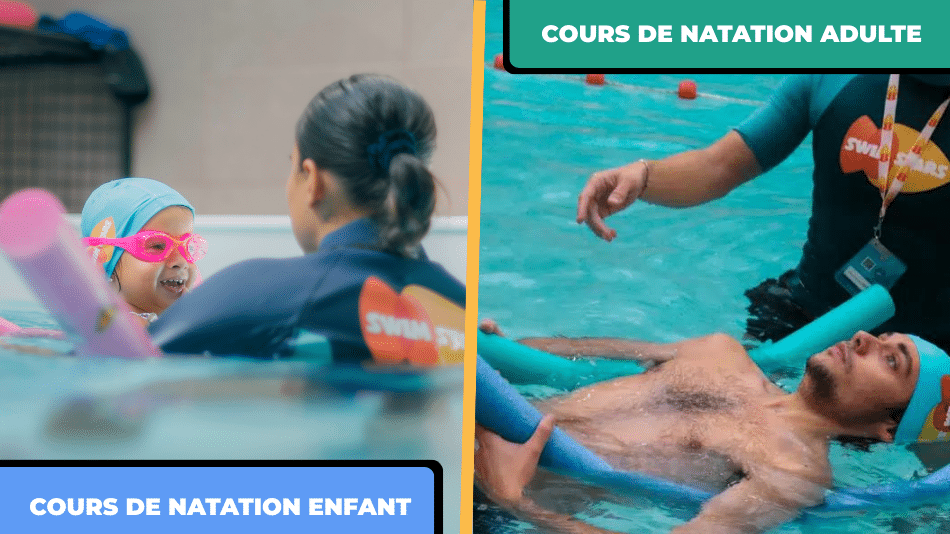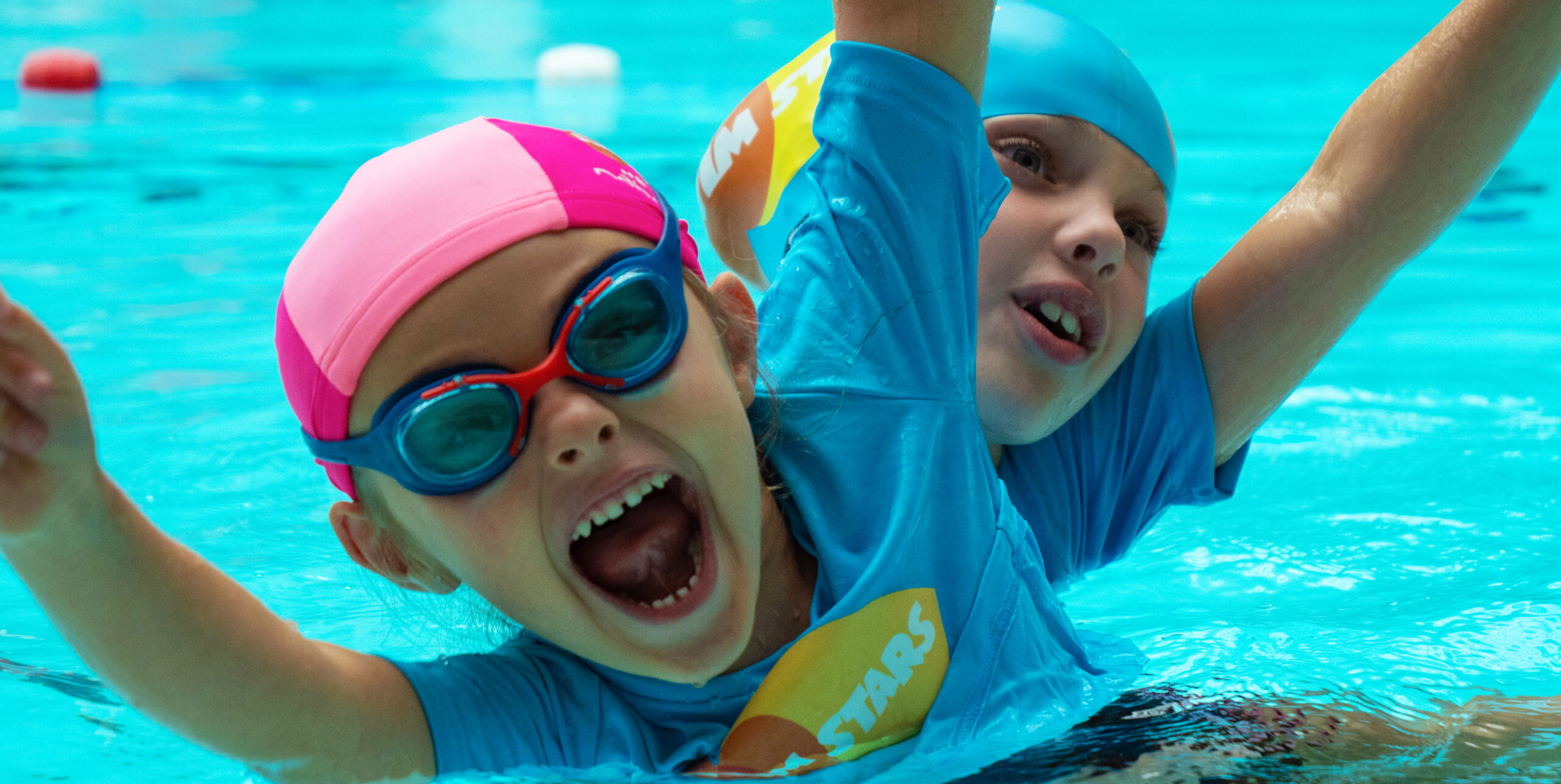8 tips to avoid drowning and stay safe with your family
To avoid drowning and have a safe family vacation, it is very important to make sure your children are comfortable in the water. So Swim Stars swimming lessons are just what you need!
Where to start? Find our 8 tips to avoid drowning and be safe with your family!
1. To prevent drowning, enroll your children in swimming lessons
What could be more important than trusting the water? Absolutely nothing else. Contrary to what we might think, knowing how to save yourself comes BEFORE knowing how to swim because one does not go without the other naturally.
Indeed, knowing how to save oneself requires the basic ability to perform certain movements that will keep your child safe. This is the case of rolling over on the back, for example, to breathe and call for help. But also of the beating of the feet to reach the edge in full safety and autonomy.
So, like most 4- to 5-year-olds who started lessons at age 3, they will acquire sufficient mental and physical maturity to learn the various swimming techniques, such as backstroke, frontstroke and breaststroke. This is the reason why you have to swim all year round.

How to avoid drowning in the summer and stay safe in the water?
2. Do not interrupt the training
Spend time with your child at your home pool learn survival techniques. How to do it? For example, equip yourself with one or two fries and leave the armbands to become a big fish. Also, avoid buoys and mattresses that can be dangerous if you roll over.
For example, have him hold onto the edge of the pool and move like a crab with his little hands, then have him reach under the fry to continue his journey. So your child will have no choice but to put his head under water.
But you can go even further with the hotheads. Place the fry on the water a reasonable distance from the edge and have your child jump into the water so that he or she is under the fry and floating.
3. Learn to swim at any age
Of course. It is always better to learn to swim at an early age because our ability to acquire, store, absorb and master knowledge is much greater than at an adult age. However, knowing how to swim is an essential quality that keeps you and your family safe. That’s why it’s never too late to learn to swim, even if you’re scared! From ages 7 to 77, prove to your children, grandchildren or friends that you can swim! And that they are safe with you from now on.
4. Respect the color of the swimming flags at the beach to avoid drowning
Swim in supervised areas. It’s always better to be supervised! But this should not make you less vigilant! So, how do you find your way around all these colors? Think about the traffic lights.

Green: swimming allowed | Yellow or orange: swimming allowed but not recommended | Red: swimming forbidden
The criteria for dangerous swimming are related to the weather, especially because of strong winds or storms that can agitate the sea and make swimming dangerous because of the waves and currents.
With or without a flag, our SAFE water safety and drowning prevention program reminds us that a child NEVER swims without a responsible and trusted adult in the water. Nothing can replace your own supervision.
5. Protect yourself from the sun and make sure you stay well hydrated
Water bottle, hat, sunglasses and high protection, in the shade of the parasol or the Decathlon super tent. Health officials recommend reasonable exposure in the morning and a break between noon and 4 p.m., when UV rays are less harmful to your children’s skin and yours.
6. Do not replace the armbands with your own vigilance
Stay by his side in the water to support his efforts, without being distracted by the people around you or even your phone. Because a drowning unfortunately makes no noise, hence the need to always have a field of vision that includes your child.
7. Secure the family pool
Never leave the pool gate open, just as you should never leave toys lying around to tempt children to get dangerously close to the edge. So if there are two of you unloading groceries, one of you delegates this task to go secure the pool and possibly play in the garden.
8. Show your child how to call for help
It’s obvious to us but not to them! Have him lift his face up to wave it in the air and teach him to shout “help” like in
a self-rescue course (report) told by the newspaper parents.fr.
With these Swim Stars tips, you will be able to approach the next big vacation in a climate of confidence… so that swimming will never be a source of annoyance, but only of pleasure and sharing.
https://blog.swimstars.fr/prevention-risques-contre-accidents-noyades/ https://blog.swimstars.fr/noyades-accidentelles/



